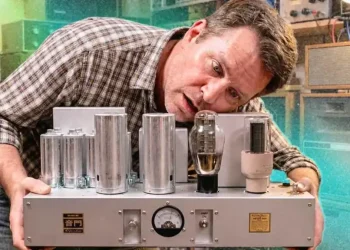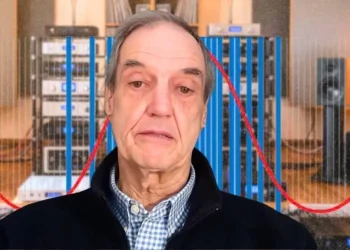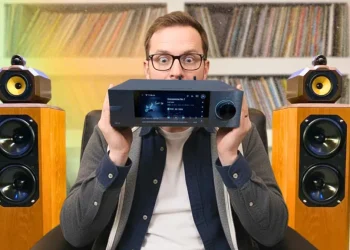4 Reasons Why Streaming Services Sound Different (Even at the Same Bitrate)
When it comes to streaming music, you might think that if the bitrate is the same and the format is lossless, the sound should be identical across platforms. After all, digital audio is just data, right? So why do many audiophiles and casual listeners claim to hear differences between services like Tidal, Qobuz, Amazon Music, and Apple Music?
It turns out, there are several reasons why streaming services can sound different—even if the files themselves are technically the same. In this article, we’ll explore the key factors that influence how audio is presented and perceived, and whether these differences are more than just expectation bias.
1. Streaming Services Process Audio Differently
While all streaming platforms send you digital audio, they don’t all process it the same way before it reaches your ears. The key factor here is Digital Signal Processing (DSP), which can subtly alter the sound.
- Qobuz is known for bypassing DSP entirely, delivering audio in a more unaltered form.
- Tidal previously used MQA (Master Quality Authenticated), which required special decoding and could introduce slight variations depending on the playback system. However, with Tidal’s recent shift to FLAC, sound consistency across different devices has improved.
- Apple Music and Amazon Music both offer standard lossless formats (ALAC and FLAC, respectively), but they differ in how they handle loudness normalization and buffering, which can influence the overall sound.
In fact, loudness normalization is an important factor. Most streaming platforms adjust volume to keep track levels consistent, but the way they do it varies. For example:
- Tidal uses a combination of ReplayGain and LUFS-based normalization, while
- Apple Music and Spotify rely solely on LUFS (Loudness Units Full Scale).
This difference in volume control can impact the dynamic range of the music—potentially making it feel more compressed or more expansive.
On top of that, the operating system itself can play a role. For example, on Windows, DirectSound might resample audio if your system’s sample rate doesn’t match the track’s, while macOS Core Audio does the same unless settings are manually adjusted.
2. Different Platforms Use Different Master Versions
Here’s something you might not realize: even the same song can sound different across streaming services because the platforms might be using different master recordings.
Record labels—not the streaming platforms—decide which masters are distributed, and sometimes one platform might use an older version of a song, while another uses a more recent remaster. These remasters can have different tonal balances, dynamic ranges, and even levels of compression.
For example, the notorious “Loudness War“ has led to remasters with increased compression, which sacrifices dynamic range and can make some tracks sound more fatiguing compared to earlier versions. This is especially noticeable on classic albums like:
- The Beatles’ catalog, which has been remastered in various styles (some warmer and analog, others brighter and more modern),
- Pink Floyd’s The Dark Side of the Moon, which has seen remasters in 1973, 1992, 2003, and 2023, each with subtle—but distinct—differences.
Unfortunately, while platforms like Qobuz and Tidal show detailed mastering information in their metadata, services like Apple Music and Spotify often don’t. So, you might think one service sounds “better” when in reality, you could be listening to a different version of the song altogether.
3. Your Gear Plays a Big Role
Even if you’re streaming the same lossless audio, your audio setup can dramatically affect how you perceive sound. Different gear—headphones, DACs, amplifiers, and speakers—can highlight or mask certain aspects of the audio.
For instance, if a platform’s master has a bit more treble, you might notice it more if you’re listening through neutral headphones. However, if you’re using a treble-heavy setup like the Beyerdynamic DT 990 Pro, that same track might sound too sharp or harsh. On the flip side, if you’re using a pair of Audeze LCD-2 headphones paired with a tube amp, that treble might sound smooth and balanced.
The quality of your equipment matters too. High-end systems, like a premium DAC and amp, can bring out subtle differences between services. But on a more basic setup, the differences between streaming platforms may be harder to detect.
This explains why online debates often erupt about which streaming service “sounds better.” Someone listening through top-tier gear might pick up on nuances that others with simpler setups completely miss.
4. The Placebo Effect: Expectation Bias at Play
Finally, there’s the psychological factor. People often hear what they expect to hear. If a streaming service like Qobuz is marketed as being “audiophile-friendly,” users might expect it to sound better than Apple Music, even if the actual differences are minimal or non-existent.
Expectation bias, a well-documented phenomenon in psychoacoustics, shows that we’re easily influenced by what we think should be true. Blind listening tests have demonstrated this—one study (Meyer & Moran, 2007) fooled participants into thinking they were listening to high-resolution audio when, in fact, the audio was only CD-quality. Most listeners couldn’t tell when the switch happened.
On top of that, the power of suggestion is real. A streaming service with a sleek, high-end design can lead users to perceive that it sounds better, even when the audio files are identical to those from a simpler app.
Conclusion: Why Do Streaming Services Sound Different?
While it may seem frustrating that streaming services don’t always sound the same—even at the same bitrate—there’s a mix of technical, perceptual, and psychological factors at play. From how each service processes audio, to the mastering choices behind the tracks, to the gear you use, all these elements combine to shape your listening experience.
Ultimately, what you hear may be influenced by more than just the data itself. And while expectation bias can be a powerful force, it’s also worth considering that, depending on your gear and the service you’re using, the differences between platforms can be real—if subtle.
This article was rewritten by JournosNews.com based on verified reporting from trusted sources. The content has been independently reviewed, fact-checked, and edited for accuracy, neutrality, tone, and global readability in accordance with Google News and AdSense standards.
All opinions, quotes, or statements from contributors, experts, or sourced organizations do not necessarily reflect the views of JournosNews.com. JournosNews.com maintains full editorial independence from any external funders, sponsors, or organizations.
Stay informed with JournosNews.com — your trusted source for verified global reporting and in-depth analysis. Follow us on Google News, BlueSky, and X for real-time updates.














